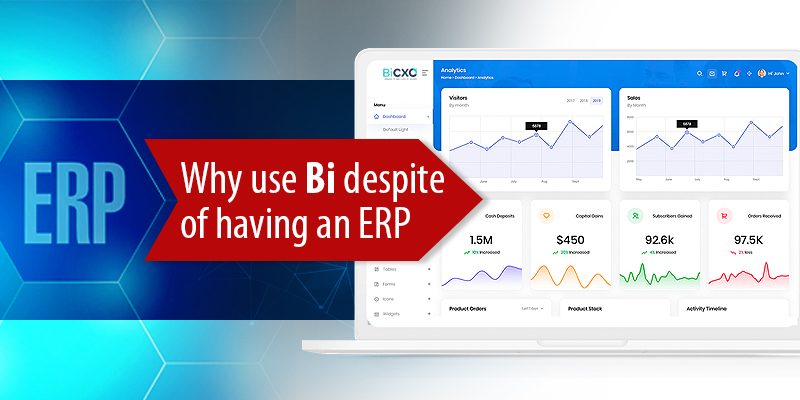At Leadge, we are strong advocates for implementing robust ERP systems along with “Business Intelligence (BI)” solutions to our SME clients in order to improve their business performance and operational efficiencies. While most SMEs have a good appreciation of the importance of an ERP system, not all have a clear understanding of why a separate BI tool is needed when they have already invested in an ERP. Is the ERP not supposed to take care of everything? Can we not get all reports out of the ERP system?
These are valid questions and we have attempted to summarize the need to have business intelligence systems over and above having an ERP
What is an ERP actually doing to your business?
ERPs are good “transaction recording” systems. They have built-in algorithms to validate the correctness of a transaction (e.g. ensuring dispatches as are per sales orders) as well as prevent a wrong event from happening (e.g. payment of an invoice already paid). They are also good at integrating operations right from procurement to production to delivery and collection.
While these are good for the business, they fall way short of expectations in helping management make the right decisions in moving the organization forward. ERPs do give out standard reports of transactions, but they are not very useful when it comes to supporting critical business decisions that management is faced with on a daily basis. We have given below just a few cases in point:
- Understanding which product segment or customer segment is more profitable
- Deciding a customer’s value to the business and rating them as 5 stars or a single star
- Monitoring the company’s performance against its financial and operational targets
- Understanding which is the best performing employees
- Why is the bank balance not reflecting profits earned?
- What are the reasons for the delay in project deliveries?
- Providing a quick overview of operations through easy navigations and drill-downs
These are just a few examples. Many organizations resort to doing these tasks manually in Excel worksheets but it has many limitations mainly because it involves significant manual effort. Thus, organizations end up making decisions based on intuition rather than basis their own data. They also take the path of being “reactive” rather than being “proactive” in their strategies.
It is exactly for these reasons that organizations started adopting Business Intelligence solutions despite having an ERP.
What is the role of a BI solution?
BI solutions actually use the same data that is stored in the ERP and other ongoing systems but provides powerful analysis through complex algorithms at their back-end. More importantly, the BI solution presents data in a visual form and not as standard rows and columns (as it is generated by the ERP systems). With drill-down features & clickable charts, they are easy to use and needs little user training. Compare this with ERPs which need significant training to navigate the various menus.
This makes it extremely easy for decision-makers to understand their operations, get required insights, and actionable intelligence at a click prompting them to take the right fact-based decisions.
All the large organizations have already adopted BI and many SMEs have started implementing these solutions to improve their business performance. The ROI on Business Intelligence is very high and one research puts the number at a whopping 1300%. Unbelievable…. right?
In fact, some advanced ERPs have already developed BI and embedded them in their ERPs looking at the market demand for a good business intelligence solution.
Every organization should evaluate the various business intelligence solution available in the market and implement the one which suits them the most.

